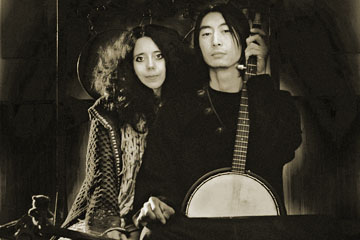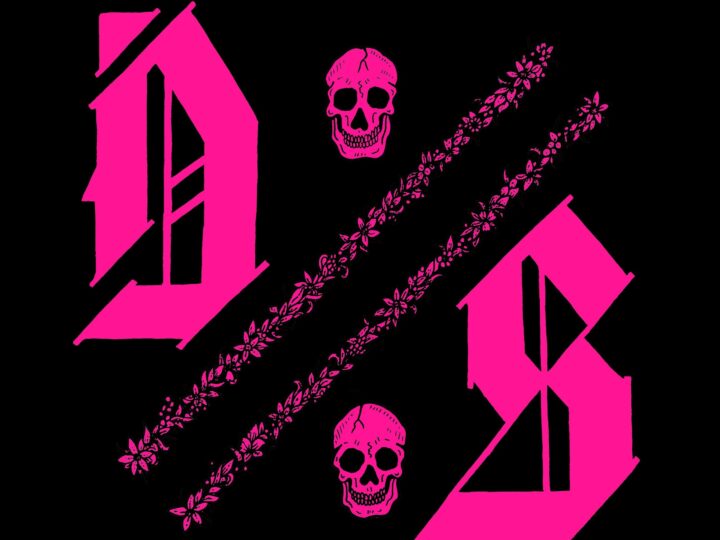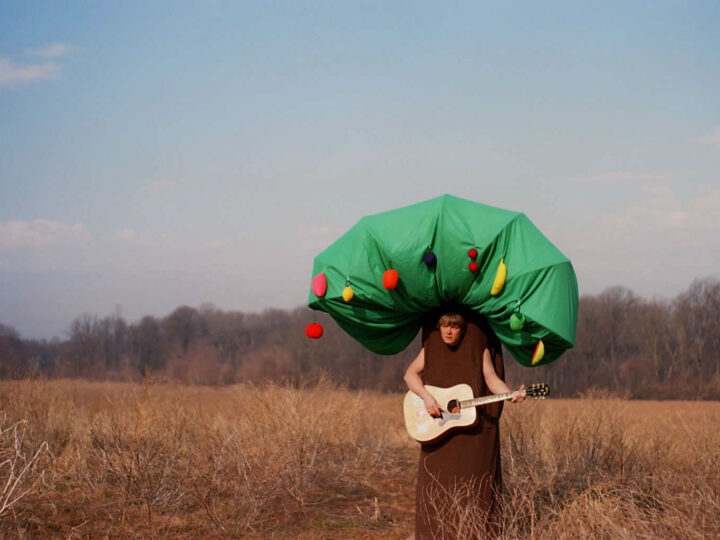
Masaki Batoh and Helena Espvall hail from two of the more notable acts in the contemporary spectrum of psych-folk, he as vocalist and leader of Japan’s sacred freaks Ghost, and she as the cellist in Philadelphia-based spectral folk rock act Espers. Their new self-titled collaboration opens with a strange and wheezy hurdy-gurdy invocation, and proceeds to an utterly lovely series of neofolk songs and improvisations that simultaneously shake the tree of time and eat its fruit in the here and now. In other words, this is fresh and emotionally nourishing music that sounds deep in time, like ocean waves, the ancient pulse.
The bulk of the songs are trad tunes from Espvall’s homeland of Sweden, but they don’t stick to the elf-rut all the time. One of the most interesting songs, in fact, is an inventive cover of Son House’s “Death Letter Blues.” The melodies are strong and beautiful throughout, and the slight frailty in both their voices adds character and undercuts the slick sentimentality that plagues overly glossy folk. Texture is all, and the variety of instruments the duo and a couple pals play—marimba, Tibetan bells, vibraphones, harps, banjos—turns the album into a faery woodland of timbre and shade.
But it’s the overdub-free improvisations—or rather, the combination of improvisations and songs—that make this disc so special. Though Batoh is not the most inventive moonlit hippie-folk guitarist in the woods, he is a sensitive one who knows the glade he’s looking for, and makes it work. In the old days, Ghost did a lot of mystic pre-rock jamming in temples and such (check out their eerie live record, Temple Stone), and Batoh’s contributions on harp and guitar here remind me of the lush but edgy acoustic witchery of those early recordings. The mournful music Espers makes is more conventionally structured, but Espvall also spends a good deal of time sawing away at improv fests and playing with fully uncorked characters like Eugene Chadbourne, Pauline Oliveros, and Fursaxa’s Tara Burke.
The penultimate song is “Kling Klang,” a spooky little Finnish folk tune that uses a delay on Espvall’s voice to create a lovely canon. Then the duo launch into the ten-minute “Kyklopes,” the most adventurous improvisation on the record. Beginning with spare percussion sounds, the cello enters over rushing waves and wind. All conventional folk tonalities are left aside for floating half melodies, as bells and a scatterings of plucked notes call up Takemitsu territory. Gradually the piece builds into ghost variations intertwining harp and cello lines, with quiet marimba adding a vibratory brocade. Far more interesting than your average hick-drone trance-scape, “Kyklopes” is a no fuss, off-the-cuff but gorgeous demonstration of folk unfurling into the unforeseen.




